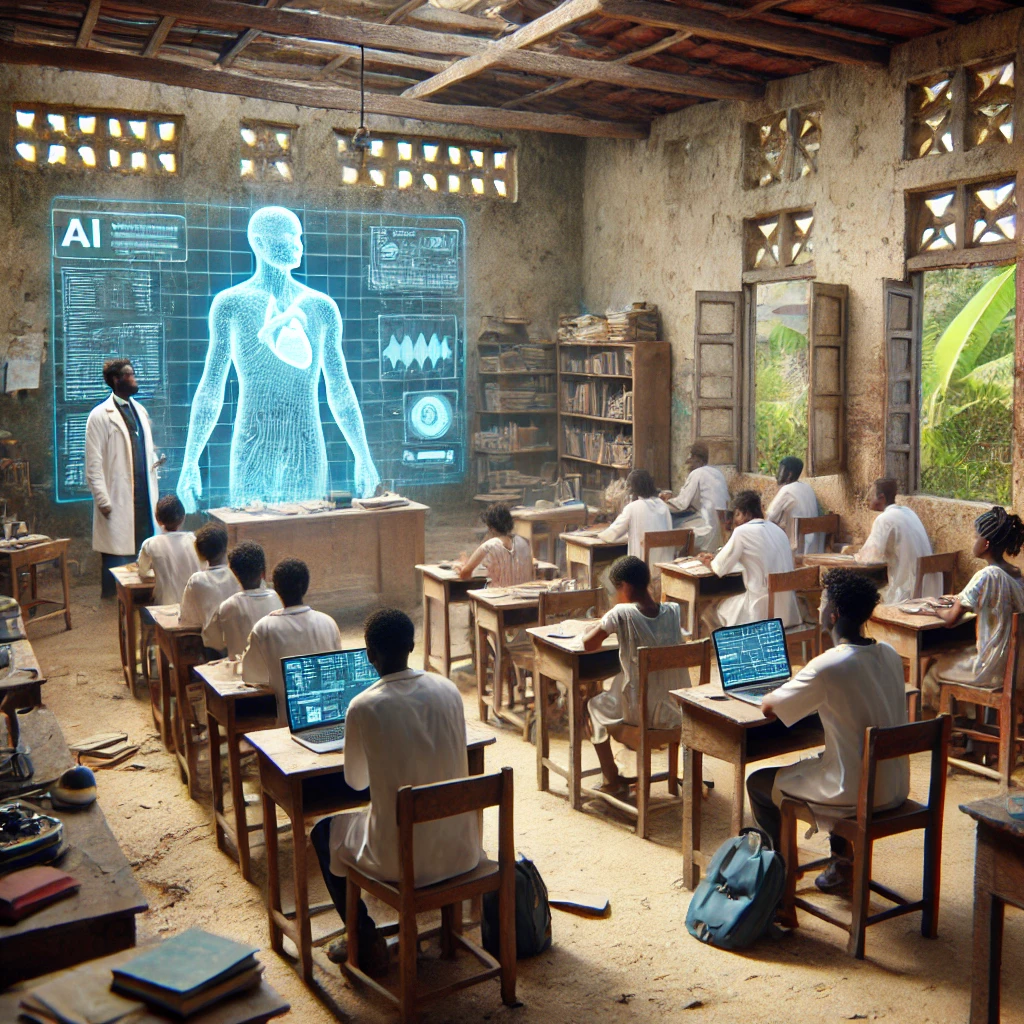Global South faces AI competency crisis in medical training
The study reveals that while most medical educators across the surveyed nations exhibit high awareness of AI’s potential in healthcare, they struggle with deeper technical proficiency. Educators performed well in areas related to ethical considerations, with scores between 4.0 and 4.5 indicating a strong understanding of privacy, bias, and responsible AI practices. However, when it came to hands-on skills like programming or developing AI models, scores dropped significantly, some as low as 1.06 on the 5-point scale.

A major new study has spotlighted the uneven landscape of artificial intelligence (AI) readiness among medical educators in developing nations, revealing significant gaps between theoretical knowledge and practical application. As AI becomes increasingly integral to medical education globally, a data-driven framework aims to close these gaps and promote sustainable, ethical AI integration in clinical training environments.
The peer-reviewed study, titled “Bridging the AI Gap in Medical Education: A Study of Competency, Readiness, and Ethical Perspectives in Developing Nations”, was published in Computers (2025). Conducted by researchers from King Faisal University and institutions in Egypt and the Philippines, the study assessed 253 medical educators across Saudi Arabia, Egypt, Jordan, India, Pakistan, and the Philippines using a 40-item instrument based on the five-dimensional ADELE framework: AI Awareness, Development of AI Skills, AI Efficacy, Leanings Towards AI, and AI Enforcement.
What is the current state of AI competency among educators?
The study reveals that while most medical educators across the surveyed nations exhibit high awareness of AI’s potential in healthcare, they struggle with deeper technical proficiency. Educators performed well in areas related to ethical considerations, with scores between 4.0 and 4.5 indicating a strong understanding of privacy, bias, and responsible AI practices. However, when it came to hands-on skills like programming or developing AI models, scores dropped significantly, some as low as 1.06 on the 5-point scale.
AI Efficacy, or educators’ confidence in applying AI, also varied. While they showed motivation to learn AI, many lacked confidence in implementing it in real-world clinical scenarios. Educators also demonstrated low leanings toward incorporating AI in teaching and research, underscoring a concerning gap between knowledge and application.
Statistical analyses confirmed a strong correlation between overall AI competency and readiness, suggesting that boosting one directly enhances the other. The findings call for institutions to shift from a knowledge-centric approach to experiential learning, incorporating simulations, AI-assisted diagnostics, and research tools into faculty training programs.
Do gender and regional differences influence AI readiness?
Surprisingly, the study found no significant gender-based disparities in AI competency across all five dimensions of the ADELE model. Both male and female educators scored nearly identically on awareness, skills development, efficacy, practical leanings, and ethics, suggesting that gender inclusivity in AI education has made headway in these regions.
However, when researchers examined regional differences, particularly between Middle Eastern and South Asian educators, divergent ethical perspectives emerged. Female educators in the Middle East exhibited more conservative views on ethical AI usage than their South Asian counterparts - a difference attributed to cultural and institutional influences.
Despite these ethical variations, the remaining four dimensions, awareness, skills, efficacy, and leanings, showed no significant regional differences, reflecting a shared struggle across developing nations. This suggests that while sociocultural contexts shape ethical attitudes, the structural limitations in AI training and institutional support are largely uniform across these regions.
What solutions are proposed to advance AI integration in medical education?
To address the fragmented readiness, the study proposes the empirical ADELE technique as a scalable solution. Designed specifically for educators in resource-constrained settings, ADELE comprises five components:
- AI Awareness: Building foundational knowledge through curriculum integration, webinars, and standardized literacy programs.
- Development of AI Skills: Offering hands-on technical training in coding, simulations, and interdisciplinary collaboration.
- AI Efficacy: Enhancing confidence via mentorship, real-world problem-solving, and AI toolkits.
- Leanings Toward AI: Encouraging practical use in teaching through AI-powered modules and analytics.
- AI Enforcement: Promoting ethical implementation through compliance training and responsible governance.
This model provides a roadmap for higher education institutions to measure, monitor, and systematically improve AI readiness. It emphasizes institutional responsibility, ethical stewardship, and equitable access to training resources. The study’s authors recommend embedding ADELE within medical curricula and policymaking processes to ensure that educators are not only AI-literate but also AI-competent and ethically grounded.
Additionally, the study urges future research to explore longitudinal tracking of educator competencies and incorporate qualitative insights into ethical reasoning. Larger-scale, multinational studies would further strengthen the validity of the findings and refine the operationalization of the ADELE framework.
- READ MORE ON:
- AI in medical education
- AI ethics in medicine
- digital transformation in medical education
- AI skills gap in healthcare
- bridging the AI gap in medical education in developing countries
- AI competency and readiness among medical educators
- integrating artificial intelligence into medical school curricula
- sustainable AI integration in global health education
- FIRST PUBLISHED IN:
- Devdiscourse










